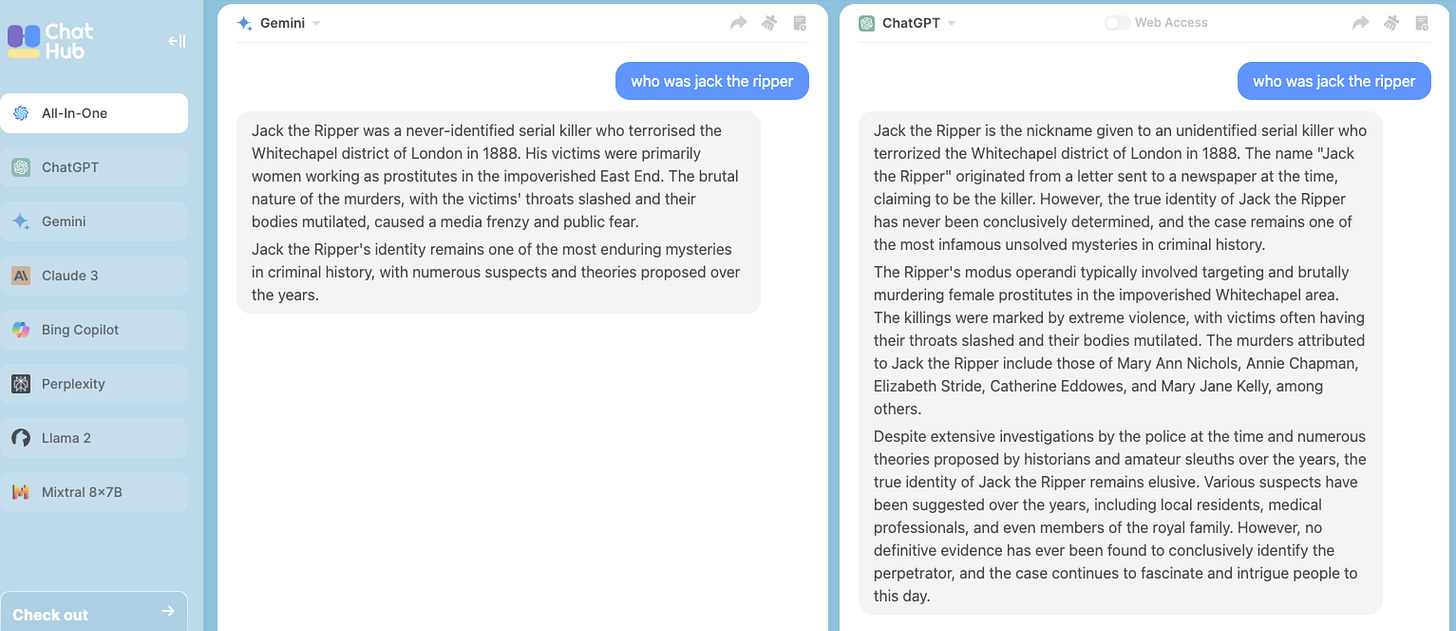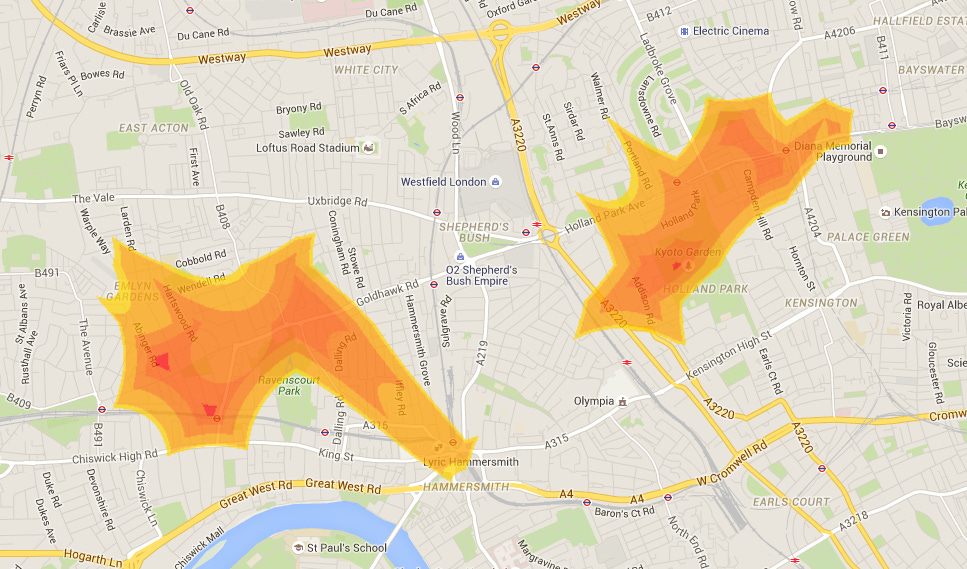Research links for crime writers
Based on a panel I did at the CWA conference, here are my tips for exploring past cases – for fiction and non-fiction writers
At the Crime Writers’ Association’s 2024 conference in Brighton on 20 April, I’m presenting a panel on researching books with two other authors – Sarah Bax Horton and Dean Jobbs,
All three of us are non-fiction crime authors, but our insights into conducting research were aimed at fiction writers too.
Sarah has written a fascinating book about Jack the Ripper (One-Armed Jack: Uncovering the Real Jack the Ripper). Dean has written several books, including one on the chilling Dr Cream (The Case of the Murderous Dr Cream: The Hunt for a Victorian Era Serial Killer).
My own books and TV work have all been about cases in the postwar period. For that reason, we made our pitch to the conference in chronological order.
This made sense historically and in terms of research methods, my focus coming up to date with multimedia sources and AI.
Here are links to the archives and sources I outlined – I hope some of you will find them useful.
Research is the fun part of writing books. You can get out of your lonely garret, explore fascinating archives, read old newspapers, watch old films and meet people.
Happy hunting!
Multimedia
YouTube youtube.com
British Pathé www.youtube.com/@britishpathe/search
Internet Archive, Wayback Machine https://archive.org/
BFI – BFI Replay www.bfi.org.uk/bfi-replay – Archive of TV, documentaries, news items available in some public libraries. Sample www.youtube.com/@britishfilminstitute (scroll down for From the Archives and Shorts) BFI Reuben Library www.bfi.org.uk/bfi-reuben-library
Imperial War Museums www.iwm.org.uk/ Videos and family history research. London research room – Tues-Fri for 15, advanced bookings essential. Original documents, sound recordings, photos, records. Get a sample www.youtube.com/@imperialwarmuseums
Archives, libraries
Mass Observation www.massobs.org.uk
The Keep www.thekeep.info
Get a reader ID to log in, order docs and book a slot: Tues-Sat. View Mass Observation diaries – everyday lives (1937-1950s, 1981 onwards). University of Sussex. The Keep – Falmer StationBritish History Online www.british-history.ac.uk/using-bho
Diaries, letters, images, maps, legal, courtBritish Library www.bl.uk/research Register for free reader's pass, view newspapers on microfiche
Archives for London archivesforlondon.org Network, seminars, newsletters. Join £12
London Metropolitan Archives www.cityoflondon.gov.uk/things-to-do/history-and-heritage/london-metropolitan-archives Research centre – photos, body snatching, Jewish & black communities, police
Your local library (for participating public libraries) – online reference resources – Who's Who, Encyclopaedia Britannica, Oxford Dictionary, Oxford Online Reference Library, Times Digital Archive (free access to PressReader via your library card). Also: academic papers free of charge
CORE core.ac.uk – open-access research delivered by Open University
(like JSTORwww.jstor.org/?refreqid=search%3Aae0d41e8250de70bce4359d70d079726)
Police museums
Metropolitan Police Museum, Sidcup www.met.police.uk/museums – Photos, archives, books, artefacts (some dating to 1829). Book a week in advance, ID photo required. Tour or research visit
Metropolitan Police Heritage Centre, West Brompton – Wealth of historical documents as well as hosting a large database containing records of over 60,000 police officers dating back to 1829. Photos
AI
Scholarcy www.scholarcy.com Summarise articles, papers, videos, sift research. 3 a day for free. £7.99 a month
Gather data chat.openai.com – Ask ChatGPT for list of geographic profiling, UK homicides each year. Answers not definitive, but will offer sources to check
ChatHub https://chromewebstore.google.com/detail/chathub-all-in-one-chatbo/iaakpnchhognanibcahlpcplchdfmgma – browser extension that allows you to feed your question into two chatbots – get results from both
192.com Sliding scale of charges – 6 credits £15.95, 30 credits £31.95. Info available: full name, address, telephone, occupants
Social media and conferences – interview experts. A big advantage of writing about stories that happened in the late 20th century or later is that there is an opportunity to interview people who will bring your account to life.
Use social media, genealogy sites (particularly family trees), conferences, university sites to find academics, relatives and experts who may be willing to talk to you.
I have spoken to retired detectives for all of my books, most of whom offered fascinating insights. Two even drove me around west London to look at crime scenes for my first book, The Hunt for the 60s’ Ripper. I also talked to one of the world’s leading geographic profilers for that book, who agreed to do a profile of the area and the crimes, which gave me an invaluable clue to where the killer may have lived (see below).









